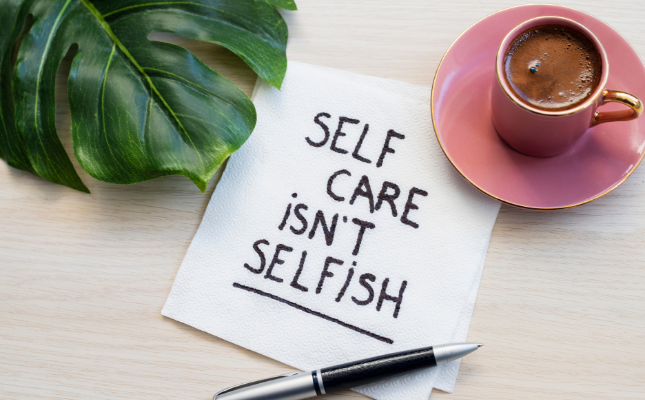Caring for a loved one facing a terminal illness is both an emotional and physical challenge. While families often want to provide comfort and care during this time, the demands can quickly become overwhelming. Hospice care steps in to provide not only care for the patient but also essential support for the caregivers. Understanding the resources and strategies offered by hospice care can make a significant difference in the caregiving journey.
Understanding the Role of Hospice Care

Hospice care is specialized support designed to offer comfort and quality of life for those nearing the end of life. However, its role extends far beyond providing medical assistance to the patient. It also provides crucial emotional, educational, and practical support to caregivers, helping them manage the complexities of caring for a terminally ill loved one.
Emotional Support for Caregivers
Caring for a loved one in their final stages of life can be emotionally exhausting. Hospice care services often include counseling and emotional support for caregivers, helping them process their feelings of grief, stress, and anxiety. Hospice teams typically include social workers, counselors, and chaplains who provide one-on-one support or family counseling sessions.
These professionals help caregivers navigate through difficult emotions, giving them tools to cope with the inevitable loss. Whether it’s through grief counseling or simply offering a listening ear, the emotional support provided by hospice can be a lifeline for those feeling overwhelmed by their role.
Physical Support and Respite Care
One of the most immediate challenges for caregivers is the physical toll of caring for a terminally ill person. From managing medications to assisting with mobility, the demands can be strenuous. Hospice care offers practical help in this area by providing in-home visits from nurses and aides who are trained in palliative care.
Hospice services also offer respite care, which is designed to give caregivers a much-needed break. Caregivers can take time to rest, recharge, and take care of their own health, knowing that their loved one is being cared for by trained professionals. Respite care can be a brief in-home service or an inpatient stay, depending on the family’s needs.
Educational Resources for Caregivers

One of the biggest sources of stress for caregivers is uncertainty about how to provide the best possible care. Hospice teams provide education on everything from managing medications to recognizing signs of discomfort or pain in the patient. By educating caregivers, hospice ensures that families feel confident and empowered in their role.
Caregivers are trained in proper techniques for feeding, bathing, and helping their loved ones move safely. In addition to these practical skills, hospice nurses often provide guidance on pain management and symptom control, helping caregivers ensure that their loved one is as comfortable as possible.
Financial and Logistical Support
Another significant source of stress for caregivers is the financial and logistical challenges of long-term care. Hospice services often include assistance with navigating insurance, Medicare, and other forms of financial aid. Social workers help families understand their options and can assist in coordinating various services, such as home healthcare equipment or specialized treatments that may be covered.
By managing these logistical concerns, hospice care allows caregivers to focus more on their loved one’s needs rather than being bogged down by paperwork or financial worries. The support can relieve a tremendous burden, allowing caregivers to have more meaningful time with their family members.
Self-Care Strategies for Caregivers

While hospice care provides essential support, it’s also important for caregivers to take active steps to care for their own physical and mental well-being. Below are some self-care strategies that can make a significant difference:
1. Accept Help
It’s common for caregivers to feel like they need to do everything on their own. However, accepting help—whether from hospice professionals or family and friends—can alleviate stress. Don’t hesitate to ask for assistance when needed.
2. Maintain Healthy Boundaries
While it’s natural to want to provide the best care possible, it’s equally important to set boundaries. Recognize that you can’t do everything, and it’s okay to say no when tasks become overwhelming.
3. Seek Emotional Support
Many caregivers find that joining a support group can be incredibly helpful. Hospice teams often facilitate caregiver support groups where people can share their experiences, concerns, and advice. It provides a sense of community and validation, which can be extremely comforting.
4. Practice Mindfulness and Relaxation Techniques
Given the emotional toll of caregiving, practices like meditation, deep breathing, and mindfulness can help caregivers manage stress. Setting aside even a few minutes a day for relaxation can lead to better mental and emotional health.
The Importance of Hospice Care in Supporting Caregivers

Hospice care is not just for the patient but is designed to provide a holistic support system that includes caregivers. The assistance caregivers receive—whether emotional, physical, or educational—ensures that they can continue providing the best care for their loved ones without burning out.
For those in Virginia, considering hospice care is a critical step in ensuring comprehensive support for both the patient and the caregiver. The resources and strategies offered through services like Virginia hospice can make the caregiving journey more manageable.
Conclusion
Caregivers often take on an enormous emotional, physical, and logistical burden when caring for a terminally ill loved one. Hospice care offers vital resources to ease that burden, providing emotional support, practical assistance, and much-needed respite. By taking advantage of these services, caregivers can focus on their well-being and the quality time they spend with their loved ones, knowing they have a dedicated support system behind them.
Understanding the full range of services hospice offers can make a world of difference for caregivers navigating this challenging experience. Through emotional, physical, and educational support, hospice care allows caregivers to manage their responsibilities while maintaining their own health and peace of mind.

